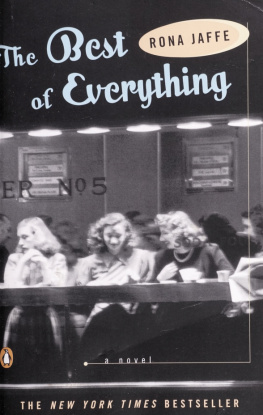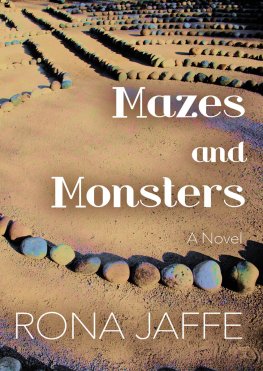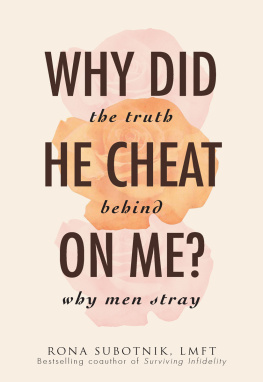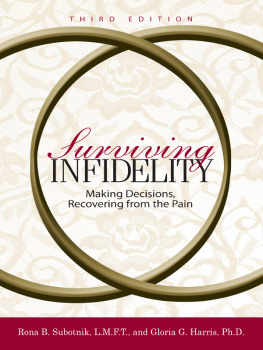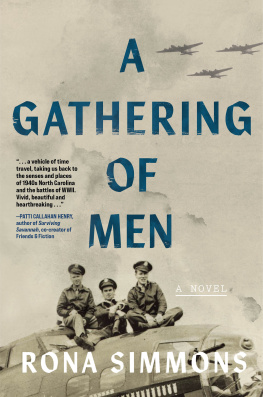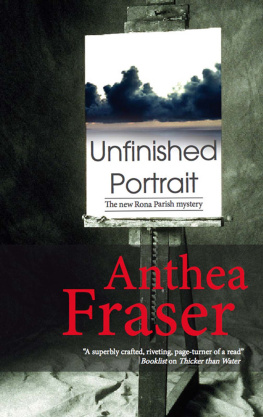The Cherry in the Martini
A Memoir
Rona Jaffe
A Case History
There must be such a thing as mental hypochondria as well as physicalwhen hearing of the symptoms of a certain aberration one immediately begins to feel them in himselfand so I hesitate to write this story. And yet, mental hypochondria is not my pleasure. I can immediately conjure up symptoms of ulcers, heart failure, anything you want to detail, but like most people I like to keep my mind special. If anyone else is eccentric, I certainly dont want to be. And yet
It was the end of last summer, in the country, where the nights were cold and bright with stars, the days still swimming-pool days. We were in the dining room of my large old country house, six or eight of us, all good friends. There was a fire in the grate of the dining room, which hadnt seen a fire in twenty years. A fire in both the living room and the dining room! It was like an English novel, we all felt, since we had grown up in clean homes with artificial fireplaces and wax fruit and maids who washed ashtrays as soon as you used them, so you wondered if you had ever really been there at all. We were all in our late twenties and early thirties, which is important to what follows.
Looking around the warm, fire-lit room, at the friends who loved one another, at the winevery dry, vin du jour, in delicate glasses meant for holidays (there were no other kind in that house)one of my friends said, This is the first time we have ever been all alone in a house with no grownups!
No one said, But we are grownups. No one said anything; we all smiled happily and agreed. A house with no grownups is this what one waits for until one realizes with dismay that everyone else is very young and the grownups are old and havent been frightening for years? What of the years between? Where have they gone? Where were we or rather, who were we? Or is this all life is?
Then someone began talking about schizophrenic children. He had a relative who had a schizophrenic childa child so good, so obedient, so anxious to please, that the parents had finally taken her to a doctor because it did not seem natural. And it turned out this was not natural. Then he began describing symptoms. I sat there, at first only interested, then disturbed. The behavior of the child I dont remember my own behavior very well, only that all through my childhood my parents told me I was very bad, and then years later my mother told me she had always worried because I was so good. But the dream life! That held me. It was as if he were telling me, like some frightening mind reader, of the dream life I had had. Some children grow out of it naturally at puberty, he said. It seems to be a combination of a glandular change and a more social environment. The doctors now try to get the schizophrenic child to relate to other children, to have real-life friends instead of the friends of his imagination. But if no one tries ?
For years, when my friends were reading Nancy Drew and the Hidden Staircase, I read psychology books. They were all over the house. My mother was a psychology major at college, my uncle a frustrated would-be doctor. No one but the school librarian told me what I must not read, and from the school library I simply stole the forbidden books. Words children do not understand are no problem. If the sentence makes sense, the words fall into place in some part of the mind that needs no words. I have been reading psychology books ever since, because to me, case histories are more interesting than the plot of any novel. So I think I am right. How strange that no one ever wrote about this, or perhaps, that no one remembers having been through it. I know that I had a special dream world as a child, that I grew out of it; and I remember it all as clearly as others remember playing baseball or dolls with their friends or fooling grownups or being in love.
I dont know why it began. There are always theories: loneliness, lack of love, lack of communication with parents. I only remember that there was a world I invented that was more real than the world I had to live in day by day, that I protected my secret world as silently and naturally as a nun says her prayers, and that it was the only world that mattered. I do not remember food, or smells, or going to new places, although I ate everything I could and went to many places, including the Worlds Fair, camp, and various towns where my family rented summer houses. I remember few books I read and very little of what I learned in school, although I was an A student. To this day I add on my fingers and often make mistakes. I do not remember the day I discovered sex or little boys, except as it happened in high school. I know I had what was called personality, that I led a gang of little boys in the neighborhood, that I was afraid of competition, of games, and of being left out, and that whenever there was a chance that I might not be chosen for a game, I would hide behind a green wooden playhouse and no one knew I was there. When we had to pair off to walk in linefor grade school children are always made to walk in pairs, it seems, for a semblance of orderI hid. I was afraid to ask anyone to be my partner, and I was sure no one would ask me. I had a few fights with bigger girls, when forced; I was always terrified and always fought so fiercely that I won a measure of respect that lasted for at least the rest of that year. Once, in camp, a girl who always hit me finally drew me out of the secret world I preferred, and although she was two years older, I knocked her down and dragged her for fifty feet along the dirt by her hair. Afterward, for the rest of that horrible summer, she followed me about abjectly, saying, What can I do for you, Master? I could not understand this, was seldom more than partially aware of her company, and was only glad she no longer hit me.
One of my very few memories of the nine years I spent at various camps was the year I was in a bunk with girls of all ages up to seventeen; I was eleven. It was rather like a womens house of detention. One girl, named Mimi (I thought this was glamorous), who lived in White Plains (where was White Plains? Undoubtedly more glamorous), who came on the train wearing a starched white organdy dress and had more striped T-shirts than I had ever seen outside a store, was the ringleader. One night she encouraged the other girls to tie me up and lock me in a closet with a pillowcase over my head. Later, one afternoon, I was alone with this Mimi. I told her that none of the other girls really liked her, that her best friend (the only one who had not participated in my midnight hazing) liked her least of all. To my surprise she started to cry. She cried until the hollow where her knee was folded under her was filled with tears, like a little pool. I looked at this pool of tears, wondered what sorrow and disappointment were, what made people cry, and why I had been able to attain this power over her. Most of all I marveled at the sight of so much water. She never bothered me again.
Reality was ugly and strange; also it had a simplicity that was like a riddle. At the right words dragons became mice, hurt was inflicted no more, the coward was queen. I did not understand this, nor try to. My private world made sense. It was to my private world with its own people that I retreated. Perhaps it was this that made me a victim, although I suspect children are always looking for a victim and the youngest makes the most logical one. I was always the youngest. I graduated from eighth grade at eleven. But my mother told me that the girls at camp (the year of the closet and pillowcase) did not like me because I read a comic book on the train going up to camp instead of making friends with them. Perhaps she was right; certainly I never doubted her until now.


